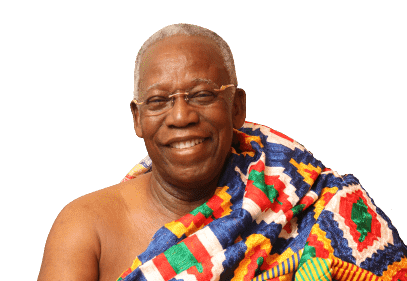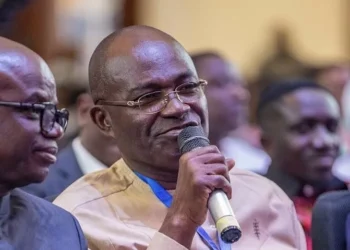In recent days, there has been a rising wave of public uproar across the country following the revelation that the Social Security and National Insurance Trust (SSNIT) has sold its 60% stake in four major hotels to Honorable Bryan Acheampong, the current Minister of Agriculture and Member of Parliament for the Abetifi Constituency.
The decision has sparked intense debate and criticism, with many questioning the propriety and ethics of such a transaction.
Professor Kojo Yankah, the esteemed Founder of the Pan African Heritage Museum (PAHM) and the African University College of Communications (AUCC), commenting on the controversial matter voiced his strong disapproval.
He emphasized that “State assets belong to the State and must be held in trust for all the people”, further asserting that it is therefore morally wrong for government officials to acquire and own state property.
Professor Yankah, while opposing the acquisition of state properties or assets by politicians however, stated that politicians like every citizen should not be barred from purchasing other free properties legally.
Conflicts of Interest
Professor Yankah’s argument underscores a fundamental principle of the separation of personal interests from public duties in governance.
When government officials, who are entrusted with managing state resources for the benefit of all citizens, become purchasers of those same assets, it creates a significant conflict of interest.
This practice not only raises ethical concerns but also undermines public trust in government institutions.

Furthermore, Dr. Kwabena Nyarko-Otoo, the TUC’s Director of Research and Policy, echoed similar sentiments.
He expressed profound concerns about the implications of such transactions on governance and public confidence, asserting that the Trade Union Congress will not sit idle for the transaction to go through.
“Besides all the technicalities, we think that it undermines governance. There’s something wrong with governments when politicians at the helm of affairs at SSNIT, appointed by the president, can only find another politician within the government set-up who has presented a so-called technically superior proposal. There’s something not right with it”.
Dr Kwabena Nyarko-Otoo, the TUC’s Director of Research and Policy
Dr Nyarko-Otoo’s comments highlight a troubling trend where political connections appear to trump transparency and fairness in the management and disposition of state assets.
The perception, whether accurate or not, that government officials are using their positions to benefit personally from state resources is deeply damaging to the integrity of public administration.
The sale of SSNIT’s hotel stake to Agriculture Minister, Honorable Bryan Acheampong is more than just a controversial transaction as it represents a potential breach of public trust and a possible precursor to state capture.
State capture occurs when private interests significantly influence a state’s decision-making processes to their advantage, often at the expense of the public good.
This phenomenon can lead to widespread corruption, erode democratic institutions, and ultimately harm national development.
To prevent such dangers, it is imperative that government officials refrain from acquiring state assets or properties.
The risk of conflict of interest is too great, and the potential for abuse of power is too significant.
Ensuring that state assets remain under public control or are sold through transparent and competitive processes is crucial for maintaining public confidence and upholding the principles of good governance.
As the country grapples with the implications of SSNIT’s decision, it becomes increasingly clear that a robust framework for the management and sale of state assets is essential.
Political leaders must prioritize the public interest above personal gain, safeguarding the resources that belong to the people.
Only by doing so can they prevent the corrosive effects of state capture and ensure a fair and just society for all citizens.
READ ALSO: Zimbabwe Engages China for $533 Million Railway Revamp






















